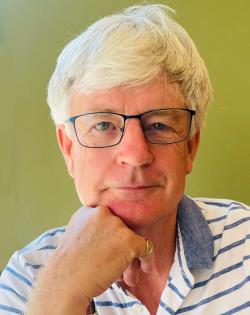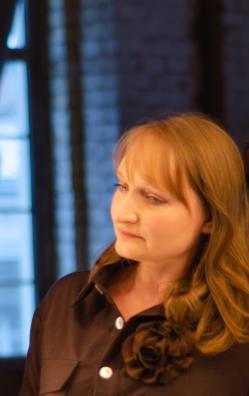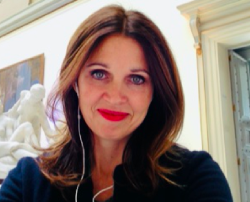Digital tech and the most marginalised: what still needs to be done?
ICT4D Collective and Microsoft (UN and International Organisations UNIO) (supported by Bangladesh NGOs Network for Radio and Communication , ICT4D.at , and YouthIGF)
Session 306
The multistakeholder digital tech communities associated with the UN system seem unlikely to deliver on the SDGs by 2030, despite the efforts of those involved in developing and implementing the Global Digital Compact (2024). In particular, SDG10 on reducing inequalities remains insufficiently addressed, with much emphasis instead continuing to be placed on maximising economic growth through innovation. All too often the most marginalised, especially those with disabilities, LGBTIQ communities, women in patriarchal societies, the elderly, ethnic minorities and refugees, are in practice made yet more marginal through the adoption of the latest digital tech by those more powerful and richer than they are.
UNDESA, ECOSOC/CSTD, many other UN agencies, and the IGF process are all conducting widespread consultations about the future of “digital and development” and the WSIS Process, but these have still not sufficiently addressed the tendency for digital tech to be used to increase inequalities, rather than to address issues of inequality and equity. Our interactive session is the culmination of a consultation process during the three months before the annual WSIS Forum through which people across our different networks have contributed their ideas to what the five highest priorities should be for governments, the private sector, civil society and the UN system in creating greater equity in the use of digital tech. The findings of this process will be presented during the session, and participants invited during the session to add to the recommendations through the interactive development of a mind map on marginalization that will provide a very specific output to feed into the wider ongoing debate within the UN system about digital tech and equity.
EVERYONE IS INVITED TO CONTRIBUTE TO THE ONLINE SURVEY IN ADVANCE OF THE SESSION AT: https://app.onlinesurveys.jisc.ac.uk/s/rhul/digital-equity-wsis2025 .
The 45 minute workshop will take the following form:
9.00-9.05 Opening
905-9.10 Findings from consultation– inviting participants to think about what is missing, and what should be prioritised
9.10-9.20 5 two-minute advocacy statements about each of one key issue by invited speakers from associated organisations
9.20-9.30 Inputs from the floor for additional actions that need to be taken
9.30-9.40 Provisional prioritisation of actions
9.40-9.45 Conclusions and finalisation of consultation.
The outcomes of the session will involve the completion of a basic framework that lists the top five priorities that need to be addressed by each of the sectors (albeit often working together) in summary format. This will be generated through the interactive creation of a mind map that will be shared with participants immediately following the workshop.





-
 C1. The role of governments and all stakeholders in the promotion of ICTs for development
C1. The role of governments and all stakeholders in the promotion of ICTs for development
-
 C2. Information and communication infrastructure
C2. Information and communication infrastructure
-
 C6. Enabling environment
C6. Enabling environment
-
 C8. Cultural diversity and identity, linguistic diversity and local content
C8. Cultural diversity and identity, linguistic diversity and local content
-
 C9. Media
C9. Media
-
 C10. Ethical dimensions of the Information Society
C10. Ethical dimensions of the Information Society
-
 C11. International and regional cooperation
C11. International and regional cooperation
This session in some ways addresses all of the WSIS Action Lines, but the most relavant of these are:
C1 - The session is throughout concerned explicitly with what the responsibilities of each sector are within a multi-sector (government, private sector and civil society) framework
C2 - Appropriate ICT infrastructures (broadly defined) are essential for the achievement of equitable access for all
C6 - An appropriate environment to enable the most marginalised fully to particpate is essential for equity
C8 - Working within a framework that cherishes diveristy (especially cultural in its broadest meaning) is essential for the inclusive use of digital technologies
C9 - Media - we recognise the importance of media, in all its diversity (and especially the use of commnunity media), as being an important means through which the marginalised can access and contibute to information and knowledge sharing
C10 - Our session is ground above all in an ethical framing that champions equity, justice and responsibilities.
C11 - The session is all about co-operation rather than competition, and recognises the increasing fragile nature of multilateralism and a rules-based international order. It explores this in teh context of relationships between governments.
-
 Goal 1: End poverty in all its forms everywhere
Goal 1: End poverty in all its forms everywhere
-
 Goal 3: Ensure healthy lives and promote well-being for all
Goal 3: Ensure healthy lives and promote well-being for all
-
 Goal 4: Ensure inclusive and equitable quality education and promote lifelong learning opportunities for all
Goal 4: Ensure inclusive and equitable quality education and promote lifelong learning opportunities for all
-
 Goal 5: Achieve gender equality and empower all women and girls
Goal 5: Achieve gender equality and empower all women and girls
-
 Goal 8: Promote inclusive and sustainable economic growth, employment and decent work for all
Goal 8: Promote inclusive and sustainable economic growth, employment and decent work for all
-
 Goal 10: Reduce inequality within and among countries
Goal 10: Reduce inequality within and among countries
-
 Goal 16: Promote just, peaceful and inclusive societies
Goal 16: Promote just, peaceful and inclusive societies
-
 Goal 17: Revitalize the global partnership for sustainable development
Goal 17: Revitalize the global partnership for sustainable development
This session is above all about SDG 10, but is also relevant to most other goals as summaried below:
Goal 1 - This session is above al about reducing poverty - although in a much wider sense than just economic poverty
Goal 3 - How to achieve well being for all is central to the discussion of this session
Goal 4 - The session specifically addresses equity, and education for all (including those leading major digital corporations) is fundamental to achieving more equitable and beneficial use of digital tech
Goal 5 - Empowering girls and women is integral to achieving the fairer use of digital tech, although we recognise that there are many other axes of inequality, so that, for example, women with disabilities from ethnic miorities in isolated rural areas are much mroe marginalised than privilege girls from the urban elite in most rich countries.
Goal 8 - reliable and well paid work is crucial for human dignity, and the session explore how sustainable economic grwoth can be inclusive, if at all.
Goal 10 - the session is above all about how digital tech can be used to reduce inequalities at all scales and in all places.
Goal 16 - the session raises important ethical questions around how the just and peaceful use of digital tech can be achieved.
Goal 17 - approproate and well framed partnerships are essential for the achievement of the wise, safe and secure use of digital tech for all, and addressing the roles of stakeholders in different sectors.